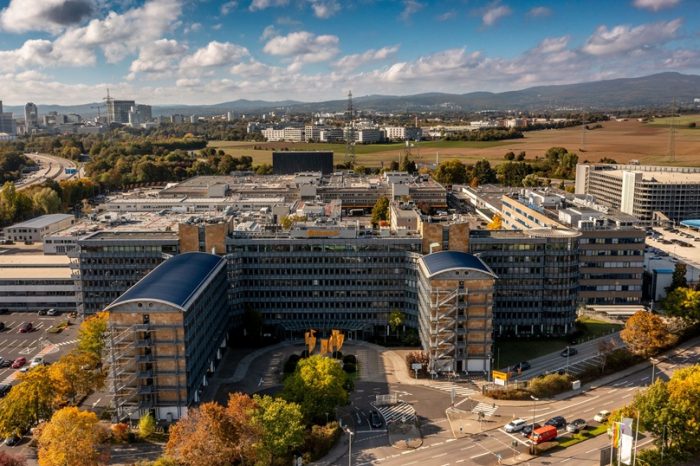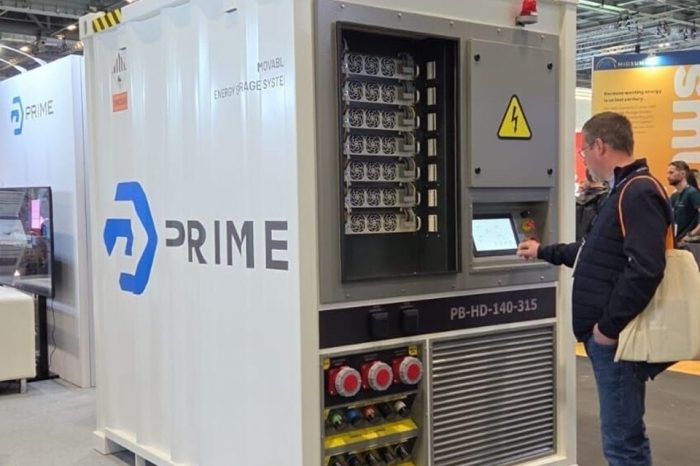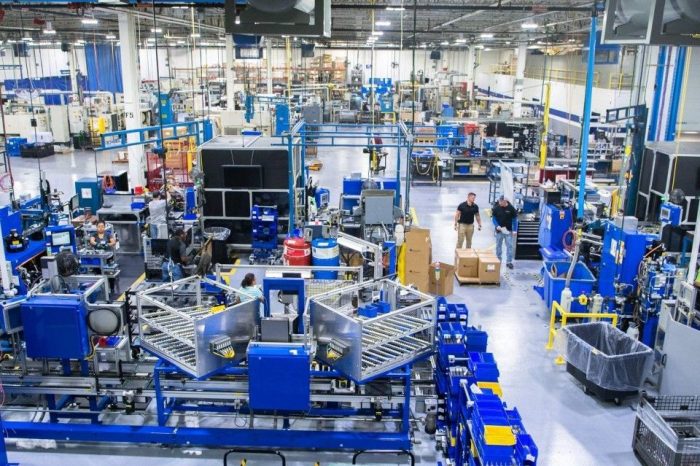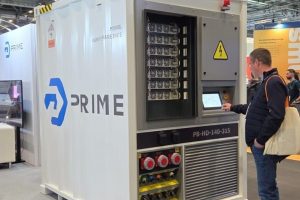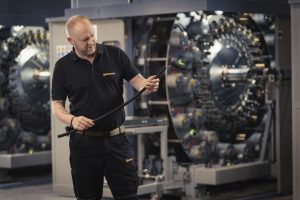Bosch launches 5G tests at German plant

Bosch says 5G will be a key building block of digitalization and connectivity in manufacturing and logistics. The company is now starting compatibility tests and channel measurements for setting up a 5G network in its wafer fab in Reutlingen.
“We at Bosch started researching and developing 5G early on, and we are convinced that this new mobile communications standard will give Industry 4.0 a boost,” says Michael Bolle, the Bosch CDO/CTO. For this reason, the company is taking an active role in the international 5G-SMART research project, which aims to test, demonstrate, and evaluate the new communications standard in real-life manufacturing environments.
The 5G-SMART partners will be testing 5G manufacturing applications at the Bosch wafer fab in Reutlingen, as well as at the Ericsson location in Kista, Sweden, and on the Fraunhofer IPT’s 5G Industry Campus Europe in Aachen.
Setting up a 5G network at the Bosch wafer fab in Reutlingen
Industrial manufacturing is undergoing a digital transformation: manual processes are in decline, technical assistance systems are making inroads, sensors transmit a wide range of data, and the degree of connectivity between people, machines, and systems is rising. In all this, 5G is the key. “Fast, reliable, and secure data transmission is the basis for Industry 4.0. Combining it with 5G will allow us to further ramp up and improve factory production,” Bolle explains. At its wafer fab in Reutlingen, Bosch is currently launching compatibility tests in partnership with Ericsson that are designed to explore the extent to which 5G impacts manufacturing. “Semiconductor production is extremely complex and sensitive. These microscopic wafers undergo more than 1,000 tests before ending up in a wide array of products, ranging from airbags to smartphones to e-bikes. In a factory environment, electromagnetic waves can be a source of interference, so we’re testing the impact 5G has on production,” says Andreas Müller, who works for Bosch as a researcher and is the chairman of the international 5G Alliance for Connected Industries and Automation (5G-ACIA). Channel measurements are also on the agenda. As a means of delivering insights into how to ensure optimum network coverage as well as where and how densely transmitting antennas need to be placed throughout the plant, for example. Bosch plans to use those findings as it sets up a 5G test network in its wafer fab in Reutlingen by fall, where it will roll out the first 5G applications. During this process, engineers will observe how machines and systems can work with 5G and investigate how much better and more efficient this connection is compared to Wi-Fi or cabling. Fields of application include autonomous transport systems that can be guided via a local cloud, remote access to machinery, and communication between industrial systems.
Wafer fab in Dresden: Bosch’s first 5G-capable semiconductor plant
Results from the Reutlingen research project can also be put to good use in future 5G network planning, for example in the company’s new wafer fab in Dresden. “In Dresden, we are building Bosch’s first 5G-capable semiconductor plant worldwide. The facility will be ready for 5G from day one,” Bolle says. Bosch is investing around a billion euros in the new wafer fab – the largest single investment in the company’s history. Semiconductor production is scheduled to begin there by the end of 2021.1 Microelectronics are paving the way for Industry 4.0 on various levels. For one, Industry 4.0 is inconceivable without intelligent sensors; for another, wafer production itself is one of the forerunners of connected manufacturing. It is nearly fully automated and employs artificial intelligence to optimize manufacturing processes in real time.
EU research project examines conditions for 5G in manufacturing
For the 5G-SMART project, a multidisciplinary team of telecommunications companies, network and factory operators, plant and mechanical engineers, and universities is combining 5G with Industry 4.0 solutions. The project partners are also testing the electromagnetic compatibility (EMC) in Bosch’s Reutlingen wafer fab, taking channel measurements, and evaluating how 5G behaves in a real-life manufacturing environment. In addition, they aim to identify new 5G business models. Funded by the European Union, the project is scheduled to run for a total of two and a half years and will end in November 2021.


